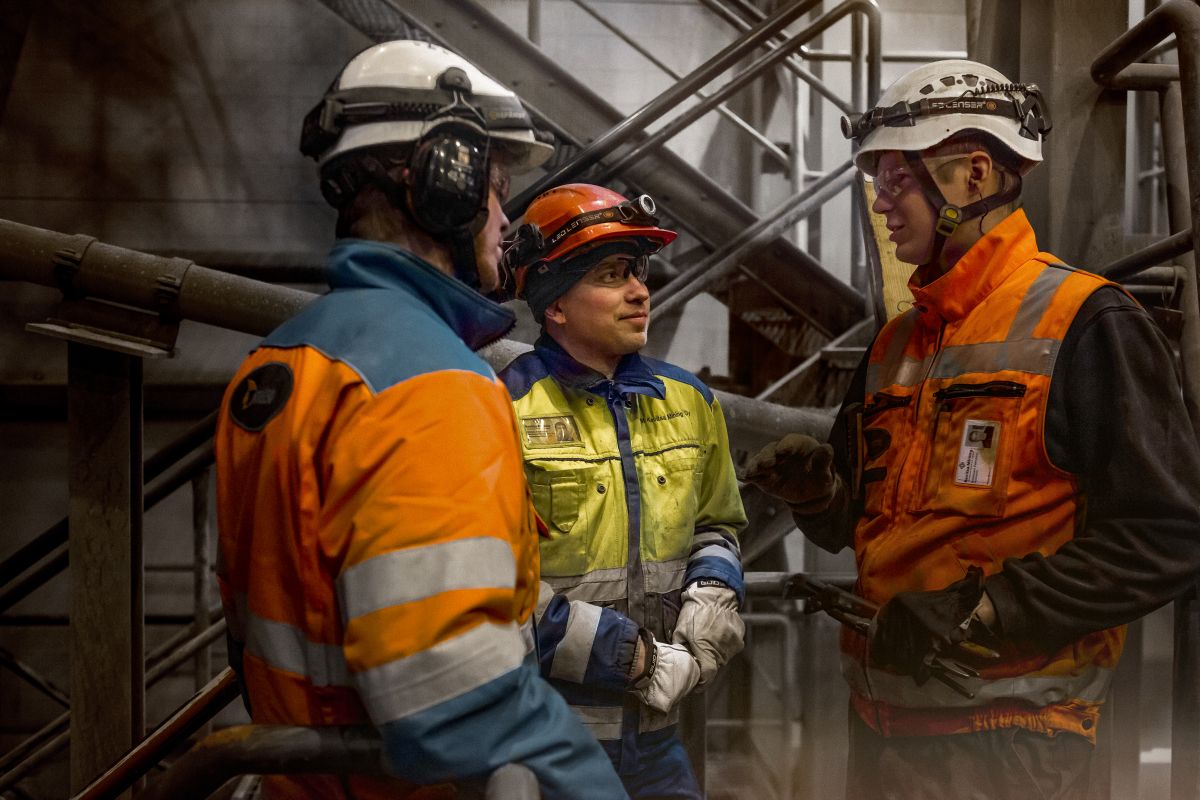Both industries are witnessing a generational change and it’s becoming more and more challenging to find experienced professionals. In addition, due to fierce competition within the industry, operations are constantly leaning towards doing more with less to ensure their overall profitability.
As a result, employers are forced to transition from employing purely technically skilled workers to seeking versatile employees with a broader set of skills. This option isn’t always obvious or easy to accomplish, so employers are finding ways to dedicate their declining technically skilled staff to tasks that play to their strengths while turning to partners to fill the knowledge gap.
Services compensate the lack of experienced workers
One way to tackle the lack of skilled workers is by getting service support. For example, our Life Cycle Services provide equipment support, maintenance and optimization services that can be tailored to meet our customer’s specific needs.
Besides the ability to ensure efficient and proper maintenance of the production equipment, we can also offer process optimization services, where our subject matter experts will perform a site audit. The resulting comprehensive report, generated post audit, includes improvement recommendations to help run the production in an optimized manner.
Due to our large existing installed base and key learnings collected over several decades, our professional services and product line teams can optimize equipment settings, liner profiles, and plant layouts to improve overall plant performance. This service has a direct positive impact on the customer’s profitability.
Technology will mitigate the skill shortage
Using new tools and technology is another way to offset difficulties in finding local talent. In general, the technology around equipment operation has been developed around a "set it and forget" concept. The new digital technologies are largely developed around proactive maintenance and maximized production from assets.
For example, with Metso Metrics Services for Aggregates, our customers are provided with their equipment condition and performance monitoring data 24/7 from anywhere. This tool advises our customer when they’re nearing a service event weeks before its occurrence so that the parts and possibly additional labor required for the service event can be planned for accordingly. Its built-in maintenance plan and logbook provide the customer with the appropriate guidance and record keeping, ensuring the reliability of their assets.
In addition, our Metso Metrics Services for Mining provides a predictive maintenance solution, aimed to help maximize the uptime and improve the performance of comminution circuits. It’s been designed to provide the maintenance crew and the operators at the mine site with new visibility and insight to their machine’s operations, with analytics, condition monitoring and predictive maintenance - all backed by expert support from Metso.
I believe that these cutting-edge technologies will mitigate the aging workforce problem and allow the reduced workforce to spend less time on irregular shutdowns and allow them to dedicate themselves to regular plant maintenance.
Attracting the next generation of skilled workforce
In my opinion, it all starts with changing the perception around the mining and aggregates industries in order to attract millennials. Few millennials entering the workforce understand how far both industries have come over the last decade - moving away from the outdated, manually driven operations that we automatically associate with mining, towards the modern automated mines and quarries that they have become.
Although one can argue that AI and automation will phase out some work, the attrition will be far outweighed by the need for new technologically-skilled talent. Moreover, the adoption of digital technology in these industries will provide millennials with the opportunity and flexibility to operate and trouble-shoot equipment remotely. As a result, the days of relocating to a remote area or having to fly in and out, being away from friends and family several weeks at a time, are being replaced by the ability to work on various equipment at several sites from a single centralized hub, usually located in a developed city. The need for 24/7 support allows for flexible work hours that can easily compliment a millennial’s work-life balance needs. So in conclusion, I would say that all three factors – outsourced services, new technology and a change in the perception of mining will all play a significant role in helping to alleviate the current skills shortage in the sector.

